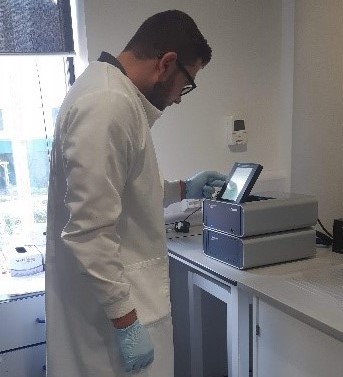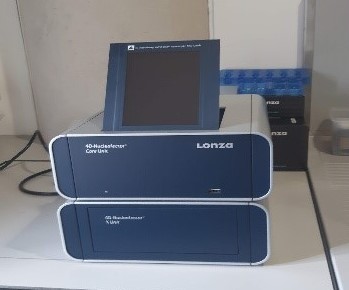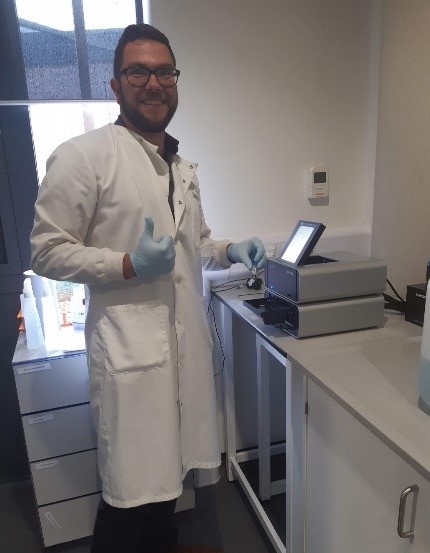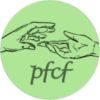In July 2019 we made our second grant to Institute in the Park at the University of Liverpool, underpinning our long term relationship with them in supporting vital research into childhood illnesses. Our grant of £13,717 covered the cost of a 4D Nucleofactor platform from Lonza. This system will facilitate an area of research that is currently unavailable within the laboratory. We asked Dr Angela Midgley at the Institute to update us on progress and how the new equipment has made a difference to their research. This is what Angela had to say.

“It may only be a small piece of equipment, however it opens up many areas of study that without it would not be possible.The research laboratory where the 4D transfection system is housed, supports many of the lab based research projects that are part of the UK’s first and only Experimental Arthritis Treatment Centre for Children . The laboratories are ideally located next to Alder Hey children’s hospital, a world leader in paediatric healthcare and research which cares for over 270,000 children and their families every year.

Our location and strong links with the hospital enable us to deliver improved health care and treatment for childhood illness. Most of our work is patient focussed translational research, involving both scientific and clinically trained researchers.
Our areas of interest involve mainly asthma and respiratory diseases, autoimmune diseases such as Juvenile arthritis and Juvenile lupus and the development of kidney disease known as lupus nephritis
Genes can act as instructions to make proteins, the expression or lack of expression of these proteins can play an important role in many diseases.
Transfection is a procedure that introduces foreign DNA into cells to force these cells to produce proteins at increased levels, suppress the production of proteins, or to produce genetically modified cells. Transfection is therefore a powerful tool to study genes and protein function, how genes are regulated and how this may lead to the production and activity of certain proteins in health and disease.
Transfection of cells allows you to enhance or inhibit specific gene expression in cells, therefore using this technology we hope to fully understand the role certain genes play in the development and progression of autoimmune diseases in children.

The 4D Nucelofactor platform is unique in that it enables highly efficient, transfection of immune cells, stem cells, neurons, and cell lines that have traditionally been difficult to transfect therefore enabling novel opportunities for disease research and therapeutic development, including the advancement of gene therapies and immunotherapies. Before this donation we were unable to carry out any of these types of experiments within our labs here in the Institute in the Park.

Quote from Dr Franz Kapplusch, postdoctoral scientist within the Wolfson Labs in the Institute in the Park. “‘I am very happy that we now own the Lonza 4D Nucleofactor System, a reliable and reproducible technology, suited to a wide variety of applications. Our projects involve working with a Jurkat cell line, which is known to be hard to transfect by conventional transfection techniques. This system will allow us to reach high transfection efficiencies in this cell line and facilitate amongst others dual luciferase promoter assays, overexpression studies and gene silencing studies therefore allowing us to investigate scientific questions that would have otherwise remained unanswered.’’
There is much more to come.”
This exciting work at the Institute in the Park is so important in addressing research into childhood illnesses which for so long have been under funded. We are delighted that we are able to support the dedicated teams at Liverpool. Angela will let us have updates on the research that our grants have helped fund through the purchase of state of the art technology.
